Best Years for the Audi Q7 SUV and 6 Years To Avoid
When considering the purchase of a pre-owned Audi Q7, knowing which years are the most reliable can be invaluable. The Audi Q7 is a luxury SUV that combines style, comfort, and performance, but not all model years are created equal. Some have proven to be paragons of reliability and satisfaction for owners, while others have faced issues that might lead you to consider different model years for a more positive ownership experience.
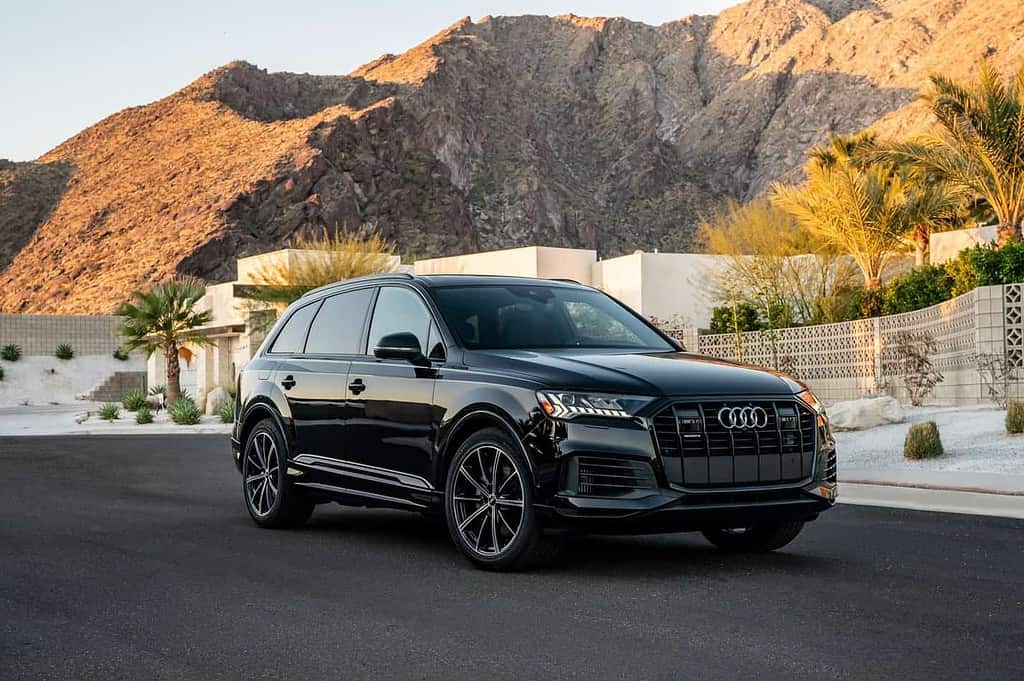
The best model years for the Audi Q7 generally offer a harmonious blend of performance, reliability, and advanced features. These select years stand out for their robust engines, superior safety ratings, and the inclusion of high-end technologies, which contribute to a more enjoyable and dependable driving experience. Conversely, some years are noted for recurring issues that could impact long-term reliability and maintenance costs, making them less desirable to potential buyers.
Expert Quick Take
I love the look of the Audi Q7, and they are packed with a lot of luxurious features. However, as a general rule, I advise most people to buy (or lease) new Q7s or certified preowned vehicles covered by warranty. Being a luxury vehicle and one not known for its reliability, Audi Q7s depreciate quickly and can rack up expensive repair bills in a hurry.
If you still are determined to buy an Audi Q7, here are the most obvious model years to buy and those to aviod!
Audi Q7 Overview
As you navigate the world of luxury SUVs, the Audi Q7 stands out with its blend of elegance and performance. This section will delve into the history and evolution of the Q7, as well as the design philosophy that guides its aesthetics and function.
History and Evolution
Initially introduced in 2006, the Audi Q7 quickly became a benchmark for premium SUVs. Over the years, it has undergone significant changes, especially in terms of exterior design and interior upgrades. The earlier models set the foundation while recent years, such as the 2023 Audi Q7, showcase the pinnacle of its development.
From the first generation to the current iteration, the Q7’s evolution reflects Audi’s commitment to innovation. The model’s history includes several facelifts and updates, with the most comprehensive redesign happening for the 2017 model year.
Certain years, including the 2017, 2019, and 2020 models, are often highlighted for their reliability and feature sets.
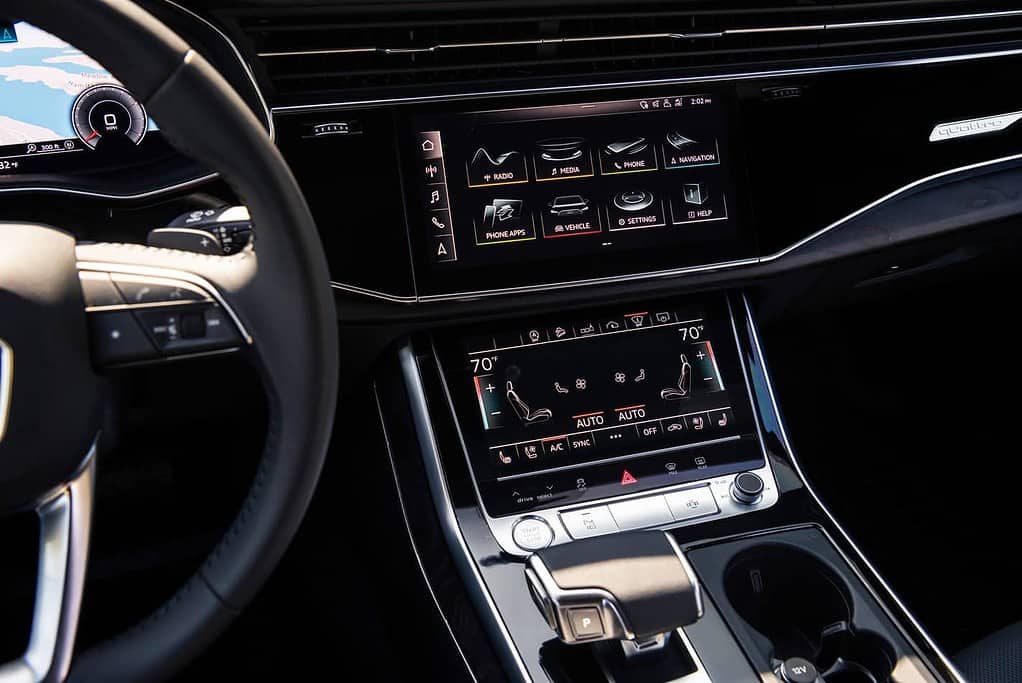
Design Philosophy
Your appreciation of the Q7 may deepen as you understand Audi’s design philosophy: a harmony between progressive aesthetics and advanced functionality.
Each facelift and new release introduces sharper lines, revamped grilles, and more sophisticated lighting systems that communicate a modern, sleek road presence.
On the inside, Audi has consistently prioritized comfort, luxury, and tech. For example, the interior of the 2023 Q7 boasts a user-centric layout complemented by high-quality materials and state-of-the-art infotainment systems.
Throughout its generational changes, the Q7 has maintained an environment that balances intuitive design with cutting-edge technology, ensuring that each journey is as comfortable as it is thrilling.
Best Years for Audi Q7
When picking an Audi Q7, you want to go for years that are celebrated for their reliability and excellent resale value. Some years stand out from the rest thanks to robust performance records and critical updates.
Top Models
If you’re looking for a Q7 that is likely to be dependable, certain model years are typically recommended. The 2023, 2022, and 2020 models fare well in terms of reliability ratings, often praised for fewer reported problems and strong consumer feedback.
The 2011 Audi Q7 also emerges as a top pick, with supporting data showing it as a wise choice for potential buyers focusing on a blend of value and performance.
Facelift Updates
Facelifts often breathe new life into a vehicle, infusing current design trends and technologies. The 2020 Audi Q7 received a significant facelift that included a refreshed exterior design, an upgraded infotainment system, and the introduction of mild-hybrid technology for improved efficiency.
These updates not only make for a modern driving experience but also bolster the Q7’s appeal in the resale market, ensuring that your investment retains its best resale value.
Years To Avoid
When considering an Audi Q7, some years have a track record of problems and should be approached with caution. This section will help you steer clear of the Q7 models that might give you headaches down the road.
Problematic Models
The Audi Q7 has a few years to avoid due to a higher incidence of issues reported by owners and industry experts:
- 2015: Among the most problematic due to transmission issues and electrical problems.
- 2017: This year had a significant recall for issues related to the sunroof.
- Other years known for issues include 2007, 2008, 2014, and 2018. These models were flagged for a variety of reasons, such as electrical malfunctions and engine problems.

Reasons to Avoid
Common problems encountered with these less reliable Audi Q7 years typically involve the transmission; disruptions in power delivery can not only make your drive uncomfortable but might also call for expensive repairs.
Coupled with recall history due to safety concerns, such as the one reported in 2017 for sunroof assembly issues, these factors make certain years less desirable.
It’s important to note that while recalls ensure fixes are provided without a cost to the owner, they can be an indicator of underlying design or manufacturing flaws.
Performance and Reliability
When scouting for an Audi Q7, your prime concerns likely center around engine performance and reliability. With varying years under its belt, the Audi Q7 demonstrates marked differences in these areas, which can make or break your decision to purchase a particular model year.
Engine Assessment
Depending on the model year, the Audi Q7’s engine lineup has experienced tweaks and overhauls that impact both power and efficiency.
For instance, the 2017 Audi Q7 was notable for its major upgrades, which included a muscular engine overhaul. It’s prudent to choose a model with a proven track record for longevity and performance.
Driving Experience
It’s not just the engine that defines the Q7’s performance; how the car handles and feels on the road is equally important.
Kelley Blue Book praised the Q7’s handling, giving it a high rating of 4.4 out of 5, indicating that the driving experience in newer models is both smooth and responsive. The agility of the Q7, despite its size, provides confidence during the drive, which is a crucial factor to consider during your selection process.
Safety and Features
When considering the best years for the Audi Q7, you’ll want to pay close attention to the safety features and luxury elements that distinguish favorable models from those less desirable.
It’s important to not only look at the overall aesthetics but also the innovations in safety and the variety of features that enhance your driving experience.
Innovative Safety
The Audi Q7 has consistently integrated advanced safety technologies. In more recent years, you’ll find features such as lane departure warnings, adaptive cruise control, and night vision assistance.
Models like the 2017 Audi Q7 have been particularly praised for their comprehensive safety suite, including Pre Sense City and Pre Sense Front, which monitor traffic conditions and can initiate emergency braking if a potential collision is detected.
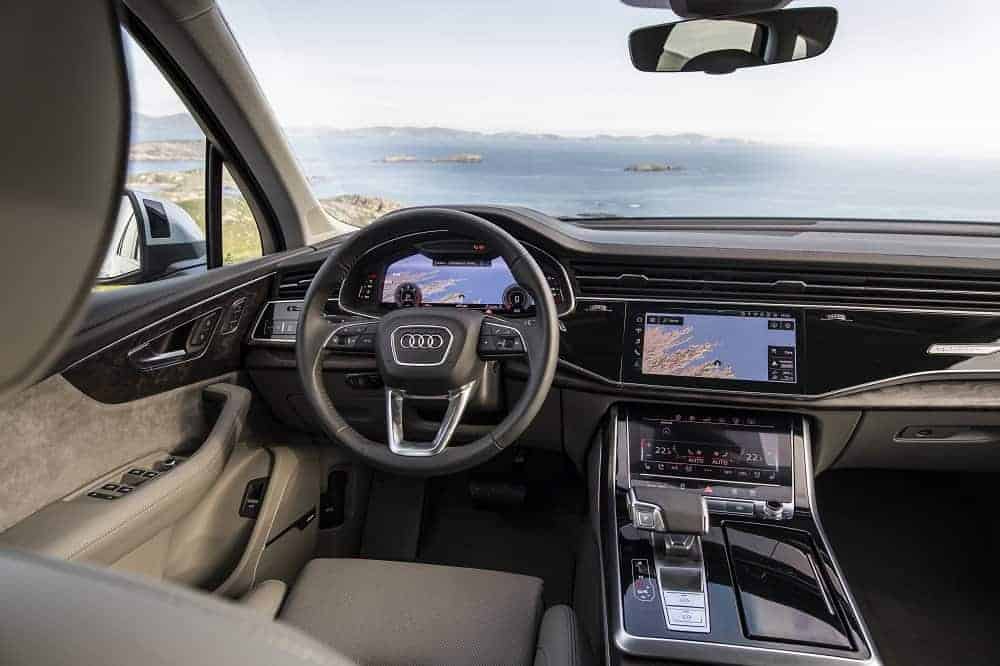
Luxury Features
In terms of luxury, the Audi Q7 does not disappoint. With each year, Audi has aimed to enhance comfort and convenience.
Look for years that introduced standout luxury features such as the virtual cockpit with a 12.3-inch display, heated and ventilated leather seats, and the BOSE or Bang & Olufsen 3D advanced sound systems.
The 2024 Audi Q7, for example, continues to uphold these high standards of luxury, ensuring that every drive is both opulent and enjoyable.
Owner Experiences
When selecting an Audi Q7, it’s crucial to consider the experiences of current and past owners. Their insights into reliability, satisfaction, and service can greatly influence your decision.
Consumer Feedback
Positive Reviews:
- 2023 and 2022 Audi Q7: Owners often rave about the advanced features and comfort, highlighting a smooth ride coupled with robust tech amenities.
- 2011 Audi Q7: According to consumer testimonials, this year hits the sweet spot in terms of reliability and value.
Negative Reviews:
- 2017 and 2015 Audi Q7: Customers have reported issues with brakes and overall fuel efficiency, suggesting that these years should perhaps be avoided.
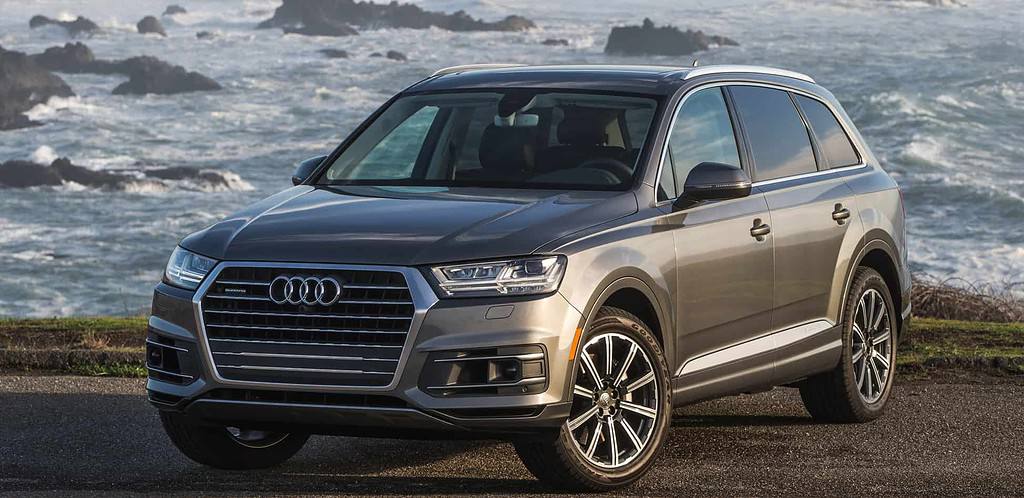
Warranty Claims Reported
Common Claims:
- Brake System Issues: Particularly for the 2015 model year, warranty claims were filed noting the need for frequent maintenance and repair.
- Engine Concerns: Some owners of the 2017 Q7 have lodged warranty claims regarding engine performance, indicating potential reliability problems.
Maintenance and Upkeep
When choosing an Audi Q7, understanding the maintenance and upkeep is crucial to ensure you’re selecting a year with reliable performance and manageable costs. Here’s what you should keep in mind regarding running costs and servicing needs for the best experience.
Running Costs
Your Audi Q7’s running costs involve several factors, including fuel efficiency, insurance prices, and the commonality of spare parts. The 2023 Audi Q7 is appreciated for its modern design and efficiency, potentially offering you savings on fuel in the long term.
On the contrary, earlier models like the 2017 or 2007 versions may incur higher running costs due to less efficient engines and possible higher insurance premiums.
Servicing Needs
Servicing needs for the Audi Q7 vary by year, so it’s important to consider the frequency and cost of routine maintenance. Newer models, such as the 2019 or 2020 Audi Q7, benefit from advanced technology and improved reliability, which may lead to less frequent service requirements.
However, models from years with noted issues, such as the 2015 Audi Q7, may demand more frequent and costly servicing to address common problems. It’s vital to keep this in mind, as it directly affects your maintenance costs and overall satisfaction with the vehicle.
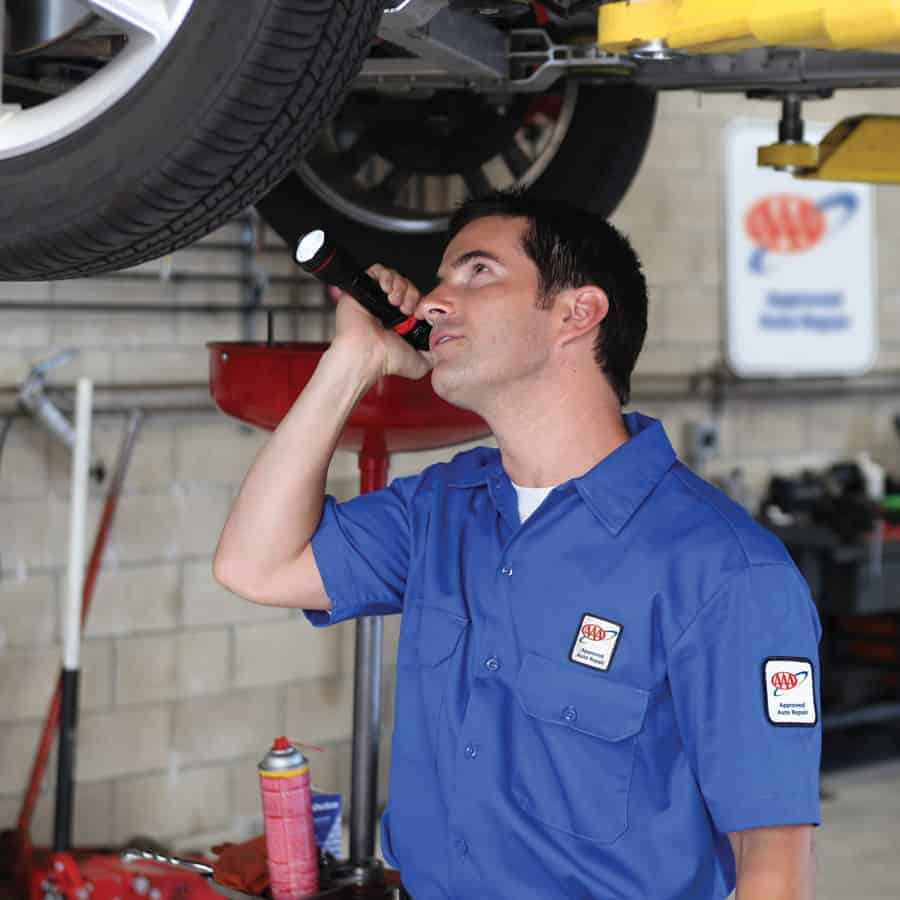
Fuel Economy and Efficiency
When considering an Audi Q7 purchase, understanding the fuel economy across different years can influence your decision to buy or avoid a specific model year.
The 2023 Audi Q7, for example, offers an average fuel economy with an estimated 19 city/25 highway MPG, striking a balance between its luxury stature and efficiency. As you mull over which Q7 to steer towards, keep these figures in your glovebox.
The older Q7 models may not boast the same mild-hybrid technology found in the recent versions, which aids in better fuel management.
The 2024 Audi Q7 55 sits higher in the range and is equipped with a robust engine, but this comes at the cost of fuel economy, so expect a slight dip in MPG ratings if you opt for power over efficiency.
To further guide your gear-shifting decision, here’s a quick look at the fuel efficiency you might expect:
| Model Year | Estimated City MPG | Estimated Highway MPG |
|---|---|---|
| 2023 | 19 | 25 |
| 2024 Q7 55 | 18 | 23 |
Keep in mind that towing capacity and your driving habits can affect these numbers. When choosing, prioritize not only the year but the trim level, as this can significantly impact your fuel efficiency. Your choice can make the difference in long-term satisfaction and your fuel budget, so choose wisely!

Resale Value Insights
When you’re in the market for an Audi Q7, understanding the depreciation of various model years can help you make an informed decision. An Audi Q7 will depreciate about 47% after 5 years, meaning that your choice’s residual value is a key factor to consider.
The 2017 Audi Q7 is often highlighted for strong resale value due to major upgrades from its redesign, which provided a smoother ride.
If you’re looking for a balance between modern features and value retention, a 2017 or 2018 model coming off a lease could save you a substantial amount compared to a brand new one. This strategy leverages the initial depreciation hit taken by the first owner.
For the best resale value, later models, especially the 2023 and 2022 versions, have proven to be favorable due to fewer reported problems and positive consumer feedback. These models tend to hold their value better because they incorporate the latest technology and have a longer remaining service life.
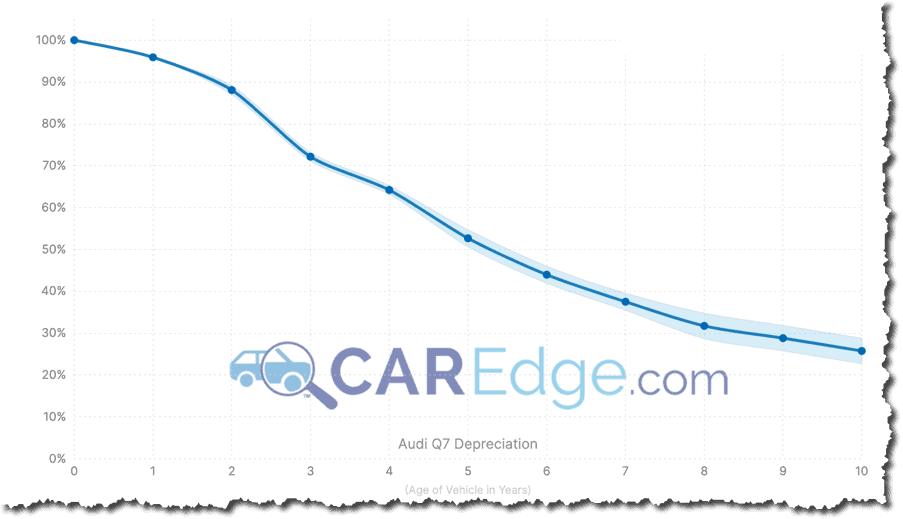
Here’s a quick glance at what you need to know about Audi Q7’s depreciation:
- Initial Purchase: Brand new Audi Q7s depreciate significantly in the first few years.
- 2017/2018 Models: Offer value due to initial depreciation being absorbed by the first owner.
- Latest Models: 2023 and 2022 have the least depreciation and best technology.
By keeping these points in mind, you can choose a year that won’t just meet your driving needs but will also be a prudent financial decision.
